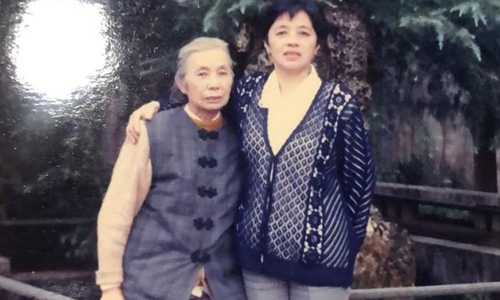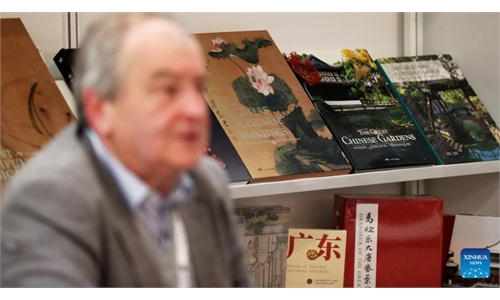ARTS / BOOKS
More young Chinese taking an interest in restoring China’s history
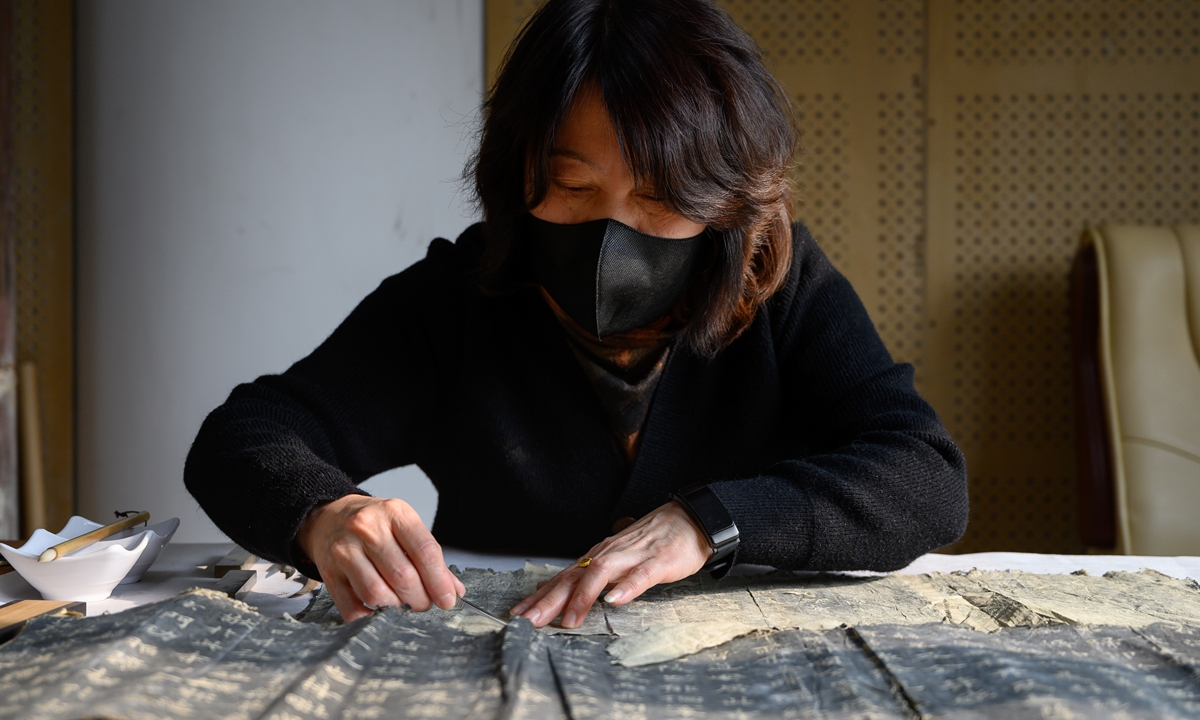
Book restorers repair ancient books. Photos: VCG and Courtesy of Huang Jin
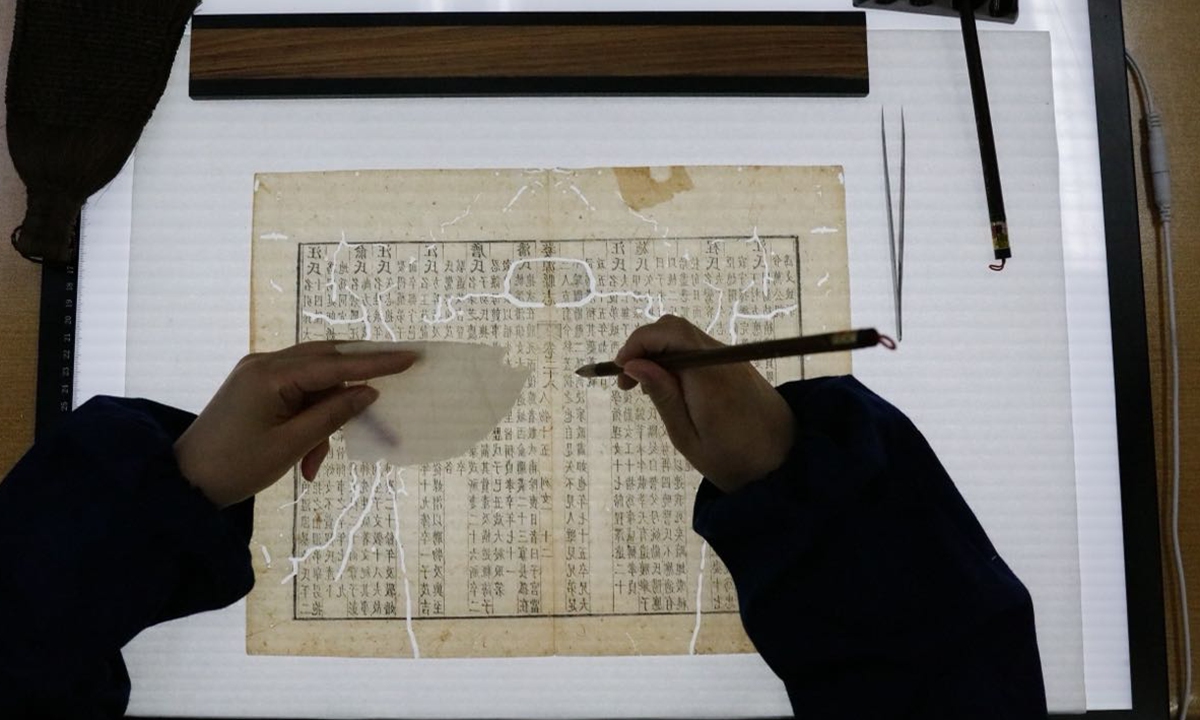
Book restorers repair ancient books. Photos: VCG and Courtesy of Huang Jin
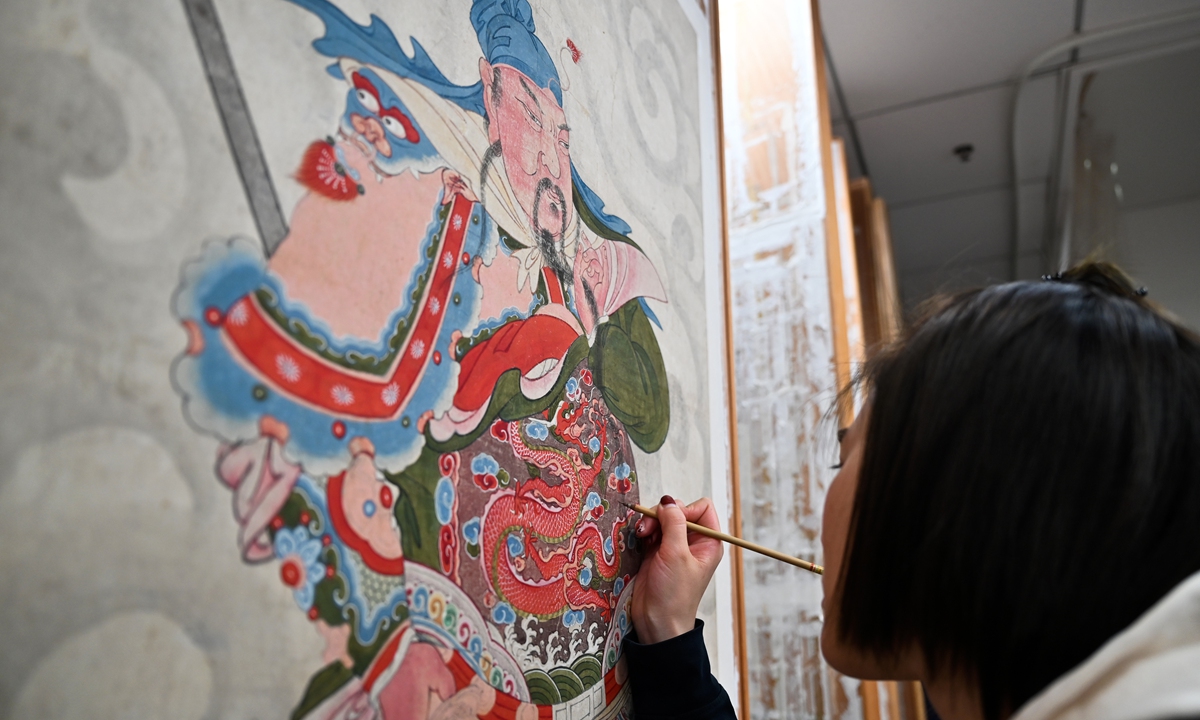
Book restorers repair ancient books. Photos: VCG and Courtesy of Huang Jin
The hit Chinese documentary Masters in the Forbidden City has amazed the world by demonstrating the splendid skills of cultural relic restoration masters in China. In the contest between ancient books and time, restorers of ancient books also use their passion and love to piece together China's 5,000-year-long history.On Monday, China's State Council issued a document on promoting ancient books in the new era, which includes strengthening fiscal and taxation policies to support the restoration and protection of ancient books and the establishment of teams to restore ancient books.
The People's Daily reported that a total of 74,000 ancient books were published in China in 2021. The National Library of China has also successively published 33,000 ancient books, while more than two-thirds of the rare and ancient books in its collection can be read online.
"To restore ancient books is to protect, inherit and develop the precious Chinese cultural heritage. It is very significant to spread Chinese culture, carry forward the national spirit, and enhance China's cultural soft power," Wang Chenmin, deputy director of the Document Preservation and Renovation Department at the Historical Documentation Center of the Shanghai Library, told the Global Times.
In recent years, more young Chinese have devoted themselves to archaeology, history and ancient book restoration due to a boost in confidence in Chinese culture.
Huang Jin, a 28-year-old ancient book restorer, joined the Ancient Book Restoration Center at the Nanjing Library due to her interest in history.
She told the Global Times that the center in East China's Jiangsu Province has 12 people on staff. Except for several experienced technical guides, the rest of the restorers in their department are all in their 20s and 30s.
"The young people here all majored in ancient book restoration, so they have a more solid foundation in theoretical knowledge than we did back then. I am very relieved to hand ancient books to them," Yang Laijing, a 65-year-old master who has been working in the field for more than 45 years, told the Global Times.
Zhou Xueying, a historian in Nanjing, told the Global Times that the importance China places on the preservation of ancient books can be seen in how the topic has been discussed at various cultural institutions.
At present, top-tier Chinese higher educational institutions such as the University of the Chinese Academy of Social Sciences, Sun Yat-sen University in Guangzhou and the Fudan University in Shanghai have all established curriculums targeting ancient book preservation.
Thirty-three-year-old Ding Feng, another restorer at the Nanjing Library, told the Global Times that he was one of the second batch of students to enter the field after universities established related majors.
Rigorous repair process
According to Ding, the actual restoration of ancient books is complicated and tedious. Before restoration begins, they hold a group discussion on the book, test the material the book is made from and take note of how damaged the book is and whether it has missed any pages.
The difficulty of a restoration is divided into five levels. The first level, the highest level of difficulty, is reserved for books whose pages are so fragile that a simple touch could damage them or have suffered serious damage from chemical changes, aging, acidification and the like.
Next comes taking photos to archive and unpack the content of the work. The team will then do their best to find paper and other materials that match the original work. And once these materials are ready, they will enter the repair stage.
Huang said she is currently in charge of repairing books belonging to the third to fifth level. But even a slightly damaged book can take up to one day to restore just 10 pages, meaning it usually takes a month to repair a single ancient book.
'Heart of awe'
Yang stated that to do the job well, interest, passion, patience and a sense of responsibility are all important for a qualified book restorer.
"When restoring a book, you must have a heart of awe. You have to understand that this book is unique. If you damage it, you won't be able to face your ancestors or future generations."
"Many people do not understand the meaning of our work because if these ancient books are not restored, we won't lose just a book, but a piece of history," said Ding.
Though the job may be stressful, the two young restorers said it is also full of fun as they feel like talking with famous ancient figures.
Huang recalled she once repaired a book of poems by a Chinese poet from the Qing Dynasty (1644-1911). On the title page, the poet had written: "If anyone dares to copy my poems, I won't let it go."
"It seems that copyright disputes were also a thing during ancient times," Huang said.
With the participation of more young people, ancient book restoration skills will also face a new opportunity in inheritance, development and creation.
“We hope we could learn more experience from our teachers, inherit the craftsmanship spirit, and inject new vitality to the occupation,” said Hang.

